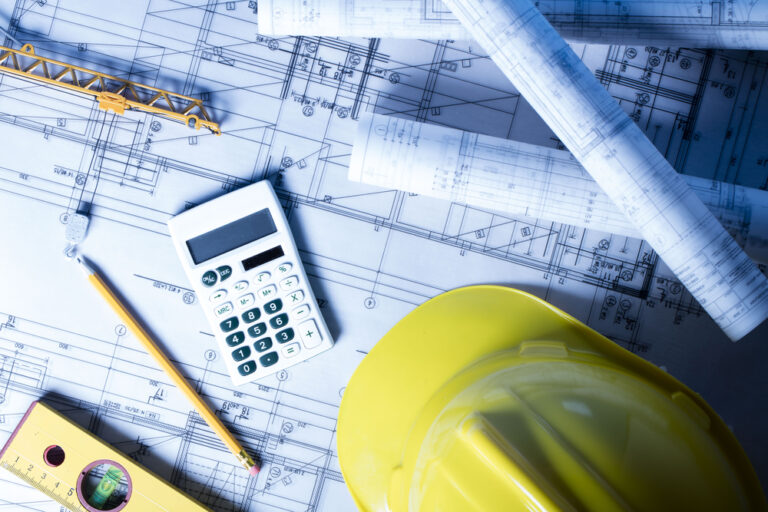When it comes to adding genuine value to your home, creating space is the best option.
That could mean an extension, perhaps to create a kitchen-diner with the wow factor, or converting a garage or adding a conservatory.
Whatever your plans, adding additional space to your home can make it more appealing to buyers, as well as adding value when you come to sell.
Loft conversions are also a great way to create more space, but, like other forms of major property work, there is lots to
consider before deciding to go ahead.
What is a loft conversion?
A loft conversion is a building project which can turn any unused space at the top of a house. It will allow homeowners to expand their living space or increase the number of bedrooms without having to move.
Types of loft conversion
There are four main types of loft conversions available:
- Rooflight: This is a popular option that doesn’t require major structural changes, as long as the original loft space has sufficient height. It involves adding windows or skylights to bring in natural light.
- Dormer: There are various types of dormer conversions suitable for different property types. Dormer conversions can maximise the available space since they provide additional height and floor space by extending the existing roof.
- Mansard: This type of conversion is chosen for larger loft adjustments and involves significant structural changes to the property. The shape of the conversion requires alterations to the property’s structure.
- Hip to gable: This conversion extends the sloping roof outwards to the external wall, creating additional space within the loft.
Do loft conversions add value to your house?
In the main, yes they do.
A huge amount of a property’s value is in square footage, so adding space will generally add value, too.
However, one major factor to consider is the ceiling price of properties where you live.
We’ll look in more detail at the projected costs for loft conversions later on, but your initial research phase
should include checking out the top price in your street.
If the street price, for instance, is £400,000 and your property already falls into this bracket, adding more space through a loft conversion might not be enough to break through this ceiling figure.
Owner of Whitegates Wolverhampton Perdip Johal believes “good standard” loft conversions can add value to properties in her area of the West Midlands.
She adds: “Loft conversions do have the ability to add value onto a property and they are always a keen selling point for us when renting or selling a property.
“But there are many areas you need to consider, such as the area the property is in and the standard of conversion.”
Speak to your local Whitegates agent, who will be able to advise on your area’s ceiling price and whether your loft conversion plans will add significant value.
Extension vs loft conversion
Many homeowners want to add space to their properties but are torn between whether to opt for a loft conversion or extension.
There are pros and cons of both…
Adding an extension
Advantages of adding an extension
- More flexibility for use of space than a loft conversion
- A squarer space can be better for design
- They cause less work-related disruption than loft conversions
Disadvantages of adding an extension
- Planning permission is usually required, which can take time
- Extensions are generally more costly than loft conversions
Adding an loft conversion
Advantages of adding a loft conversion
- Loft conversions don’t usually require planning permission
- They can usually be completed quicker than extensions
- Generally, loft conversions cost less than an extension
Disadvantages of adding a loft conversion
- A good loft conversion is dependent on roof space
- Space use is limited due to sloped ceilings
- Natural light can be limited
- Loft conversions can cause more disruption than extensions
What’s better: an extension or a loft conversion?
Although a loft conversion is usually quicker and may not need planning permission, the disruption to your home may be more apparent.
With an extension, builders may be able to cordon off an area in your house to work. However, with a loft conversion, its likely that builders will be trapsing through your home while they work.
Loft conversion cost
Very few loft conversions are the same and, as such, costs can vary.
According to Dataloft, the average cost of a loft conversion in the UK is between £40,000-£100,000.
But keeping your conversion costs within your set budget will depend on several factors.
Using an architect
While the use of an architect is not often required for a loft conversion, engaging one could help you squeeze every inch of available space from the work.
This can add an additional cost, but is worth considering if your space is limited or awkward from a design point of view.
Choosing the right builder
The biggest part of your budget will go on a builder to undertake the word.
You’ll want to ensure it’s money well spent, so take your time to obtain quotes from several firms and look for reviews and recommendations of their work.
Going for the cheapest option is not always the wisest move, so do your research in advance.
Loft conversion ideas
Before going ahead with work, it pays to establish your main aims and what you hope to achieve.
As we mentioned before, a loft conversion may not add significant value if your property is already touching the area ceiling price.
So, if your main aim is to add value, consider all options to add space before deciding to go ahead.
Create another bedroom with an en-suite
Growing families or unforeseen circumstances can spark a need to extend and if this is the case for you, spend time deciding how best to use your loft space.
Will it be for grown-ups? In that case you may want to add a master bedroom with an en-suite bathroom.
Use your loft as a smart home office
Perhaps you need a larger home office space. Many companies now offer more flexible home-working so having a comfortable, spacious office set up in the loft could help to further aid your productivity.
Convert your loft into a home cinema
If you’re really looking to go to town and create an adult haven where you can escape, you could consider a loft cinema room.
It might sound extravagant (and it is!) and it may not add value to your home, but this kind of space could easier be converted into a bedroom should you come to sell your home at a later date.
Planning your loft conversion
Legal considerations for your loft conversion
While your loft conversion may not always require planning permission, any work on your home needs to comply with building regulations.
Make sure any trades you use are certified by official bodies like FENSA for windows and Gas Safe for gas work.
If you use people who aren’t backed by official trade bodies, their work must be signed off by the local council.
The most serious scenario arising from failure to comply with building regulations is having to revert all the work – a hugely costly process!
Your neighbours and the Party Wall Act
If you are planning a loft conversion in your detached home, it’s unlikely any work will affect your neighbours.
But given building work is one of the biggest causes of disputes, it might be worth, out of courtesy, letting your neighbours know what you are planning – even if it’s just to alert them to the trade vehicles on the street outside your property.
Loft conversions in semi-detached or terraced homes can be more complicated and your neighbours would need to be notified under the Party Wall Act.
To find our whether a loft conversion will add value to your home, book a free home valuation today.




